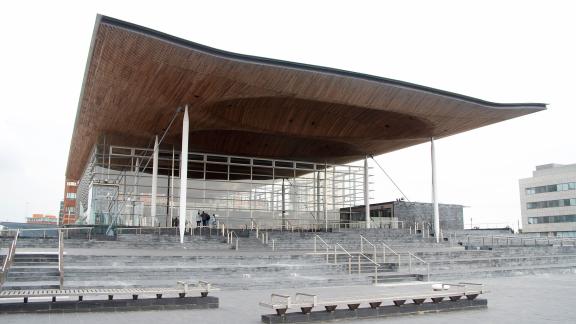An updated picture of NHS pressures in Wales

Firstly, I’d like to acknowledge the horrific events in Ukraine that are sending shockwaves across the world. My thoughts are with everyone who is affected by what is happening. This is a deeply concerning time and we stand in solidarity with the people of Ukraine.
NHS leaders remain concerned that public perception may be that the NHS is returning to ‘normal’ and patients will grow frustrated when waiting times for both emergency and scheduled care don’t rapidly decline. It’s essential we try to communicate the reality of the situation whilst trying not to put people off accessing services and potentially coming to further harm.
The narrative over the past month has very much moved towards how we will live with Covid. There’s no doubt the general sense of threat from Covid has waned but we continue to highlight the huge implications for the delivery of health and care services.
While no one wants to be the negative voice, NHS leaders remain concerned that public perception may be that the NHS is returning to ‘normal’ and patients will grow frustrated when waiting times for both emergency and scheduled care don’t rapidly decline. It’s essential we try to communicate the reality of the situation whilst trying not to put people off accessing services and potentially coming to further harm.
We must remember winter is not quite over and the usual seasonal pressures are still present alongside the implications of Covid – the main factors being higher staff absences combined with much higher demand for services.
...figures don’t show the challenges facing primary and community care services, which NHS leaders tell us are equally as stretched as secondary care.
This month’s NHS performance statistics gave us part of the picture, with many areas still under huge pressure. We know that ambulance handover delays remain a huge cause for concern, compounded by ongoing issues with patient flow through hospitals and soaring levels of demand on the whole system. However, there were some small green shoots, such as the number of patients waiting for treatment in December increasing at the slowest rate since the start of the pandemic.
NHS leaders expect there to be a significant uncovering of ‘late presentations’ emerging over the next two years, due to the impact Covid had on primary care, translating into further harm in the long run.
As we pointed out in our response to the performance data, these figures don’t show the challenges facing primary and community care services, which NHS leaders tell us are equally as stretched as secondary care. Waiting lists and built-up demand for care in these areas, including for mental health services, are just as worrying, especially when considering the unknowns of how many people are yet to come forward for treatment because of the pandemic.
NHS leaders expect there to be a significant uncovering of ‘late presentations’ emerging over the next two years, due to the impact Covid had on primary care, translating into further harm in the long run. While protective measures against Covid are being eased in light of the stabilising situation, the impact of Covid on the NHS is going to remain with us for years to come. This is why the whole system needs to be equally supported and we all need to clearly articulate the reality of the challenges ahead to the public and politicians.
As we approach the second anniversary of the first lockdown in the UK, with the announcement of fourth Covid vaccines for the most vulnerable in our society and external pressure on services to return to pre-pandemic normal, we must remember those we rely on to tackle these huge challenges for us; our amazing staff. Pulling out all the stops month after month, staff continue to be the beating heart of the health service. We continue to be in awe of their resilience and can’t begin to express the depths of our gratitude.



